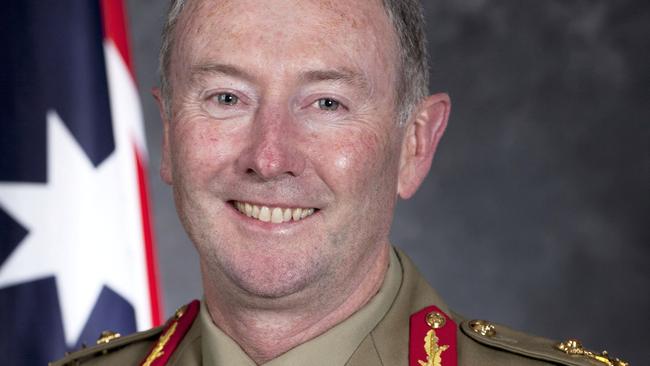War crimes report: Officers ‘must be called to account’, says Jeff Sengelman
The former commander who became the driving force behind the establishment of the Brereton war crimes inquiry says leadership accountability is an ‘unwritten contract’.

The former commander who became the driving force behind the establishment of the Brereton war crimes inquiry says leadership accountability is an “unwritten contract” in which senior officers are responsible “for all that their command does or fails to do”.
As Defence grapples with fallout from the four-year probe that found 25 Australian soldiers committed up to 39 murders in Afghanistan, retired Major General Jeff Sengelman has revealed he feels “like a parent who’s had to take their loved son or daughter down to the police station”.
But, in his first public comments on the inquiry, the former special operations commander said the nation should not forget that special forces soldiers “called themselves out”, and understanding what went wrong is the first step towards redemption for the elite fighting unit.
“When we found out about it, it was people from within special operations who told the stories, not outsiders,” he told the No Limitations podcast.
“People inside, our own people came forward and shared those stories, the details of who shared what with who, at what time, will come out later.”
In 2015, General Sengelman alerted Defence to “serious endemic problems” in special operations command, setting in train a series of investigations that led to the Brereton inquiry for the Inspector General of the Australian Defence Force.
In the podcast by Blenheim Partners, an executive search and recruitment firm, General Sengelman said alcohol abuse, misdemeanours and administrative problems were the first signs that something was wrong in the elite Special Air Service Regiment.
“So I’m in there and I’m looking at it and there was a huge dissonance between what I was seeing – the objective evidence of the circumstances and what I was or was not being told as a leader about what was really going on,” he said.
General Sengelman set off the process by asking SASR soldiers to tell him, confidentiality, about their own failures and those of the unit. He received 209 responses.
None revealed criminality, but “it told me that they had made a choice to start to talk that they wanted change”.
“Many of them were expressing sadness and regret about what had happened,” he said.
“I do believe that the reason we are here where we are today is not because any one person blew a whistle or did one thing better than another, but collectively the organisation decided to act.”
As Defence chiefs work through a list of senior officers to identify those who bear some responsibility for crimes committed by lower-ranked soldiers, General Sengelman argued command responsibility was a fundamental principle that held the military together.
“Sure, you may not have been responsible for an incident or physically done it yourself, but you are also accountable as their leader,” General Sengelman said.
“You are not just their leader or commander. You were also one of them.
“Those unwritten contracts, at least to me, are things that bind us and if they ever called into doubt, they send a shudder through an organisation.
“If executing military operations where life and death is a realistic prospect simply becomes a transactional endeavour based on the money you’re paid; well, armies of the past have fallen apart on such loose DNA.”
The career army officer who became special operations commander in 2014 – nearly 30 years after passing the gruelling SASR selection course – told the podcast that the key to leadership was character.
“So when I look at people now, I look past the bits of paper they put in front of me or the medals on their chest. I want to look inside them and … get to the real person. I want to say, who are you and what sort of character have you got?”
He said the delivery of the Brereton report had been a national shock, but over time there would be “redemption, forgiveness, rebuilding”.
“I feel like I’ve done the right thing and the necessary thing, not just because it’s the law, but because I knew that was the only way to end up in a good place afterwards for all of us,” General Sengelman said.



